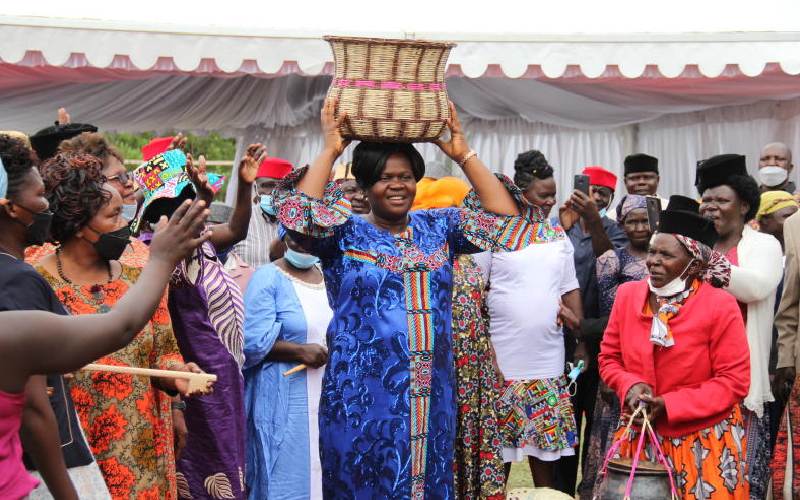×
The Standard e-Paper
Fearless, Trusted News

Homa Bay woman representative Gladys Wanga carries a basket given by women colleagues during her endorsement for governor seat at Karabondi in Karachuonyo constituency on December 30, 2021. [James Omoro, Standard]
Every politician embarks on a campaign with the belief that they will win an election. Confidence is a plus in running an electoral campaign, but it is not enough to assure victory especially for women candidates.